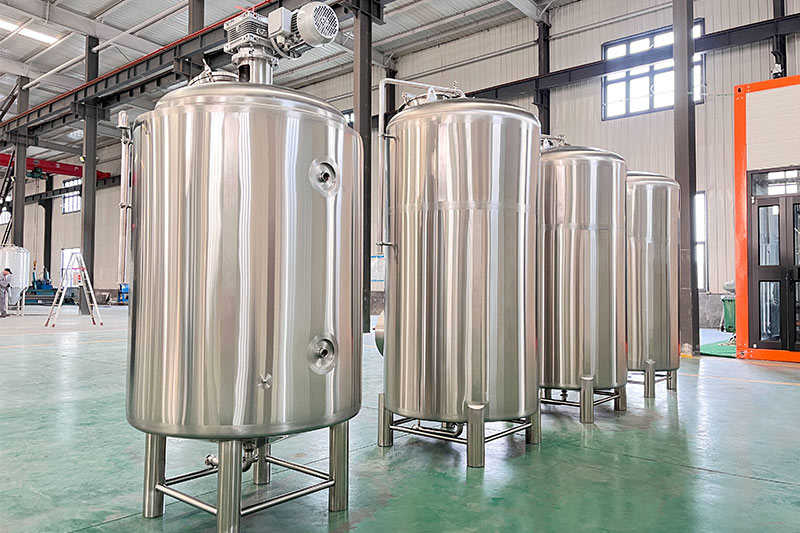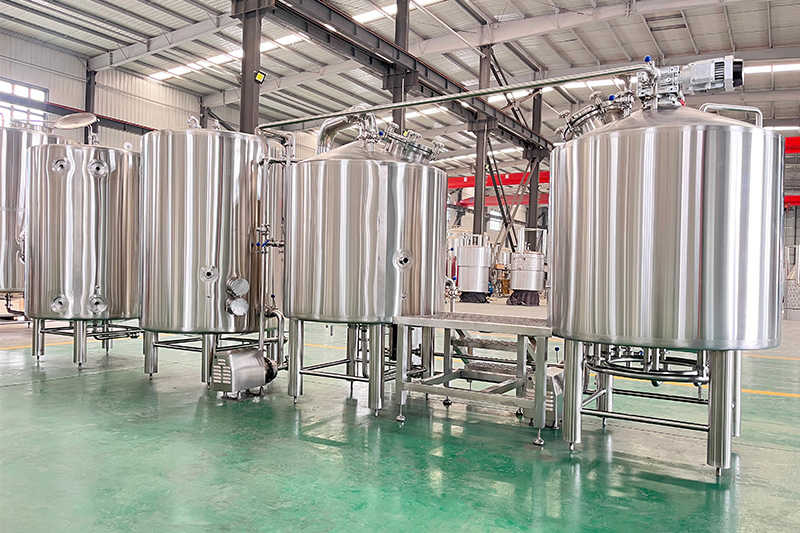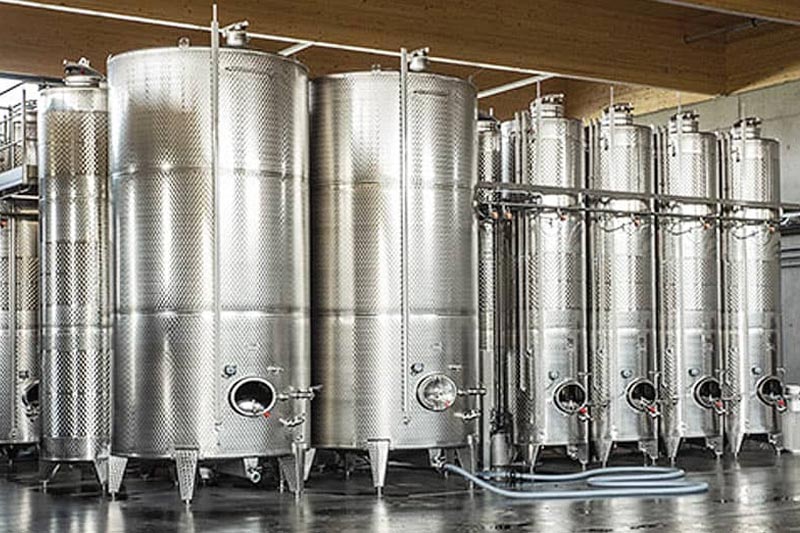Brewing craft beer is as much an art as it is a science. Whether you’re an aspiring brewer, managing a microbrewery, or running a large-scale brewery, having the right craft brewing equipment is essential for success. As a manufacturer with decades of experience in producing high-quality brewing equipment, we understand the challenges and opportunities in the brewing industry. With the right tools, you can produce better beer, streamline your brewing process, and scale your operations efficiently.This comprehensive guide will walk you through the essentials of brewing equipment, from selecting the right tanks to understanding the brewing process. By the end, you’ll have the knowledge to make informed decisions for your brewery, whether you’re starting small or expanding your existing operations.

1. What is Brewing Equipment and Why Does It Matter?
Brewing equipment refers to the tools and machinery used to produce beer, from raw ingredients to the final product. For craft breweries, having quality brewing equipment ensures consistency, efficiency, and scalability. Whether you’re brewing small batches or producing at a commercial level, the right equipment can make or break your beer.
Key Components of Brewing Equipment:
- Brewhouse: The heart of your brewery where mashing, lautering, boiling, and whirlpooling occur.
- Tanks: Including fermentation tanks, brite tanks, and storage tanks.
- Kegs and Keg Washers: For packaging and maintaining clean dispensing systems.
- Pumps and Heat Exchangers: To manage temperature and flow during brewing.
Investing in commercial brewing equipment designed for your specific needs is essential for producing consistent, high-quality beer.
2. How Does the Brewing Process Work?
The brewing process begins with four primary ingredients: water, malt, hops, and yeast. Each step in the brewing process requires specialized equipment to ensure the best results. Here’s a breakdown:
Steps in the Brewing Process:
- Mashing: Grist (ground malt) is mixed with water in the mash tun to extract sugars.
- Boiling: The mixture is boiled in the brewhouse, where hops are added for bitterness and aroma.
- Fermentation: The wort is transferred to fermenters, where yeast is added to convert sugars into alcohol.
- Conditioning: In brite tanks, the beer is clarified and carbonated.
- Packaging: The finished beer is kegged, bottled, or canned.
By understanding the brewing process, you can optimize each stage with the right equipment to produce better beer efficiently.
3. What Key Tanks Do You Need for Your Brewery?
Tanks are central to every brewery, and their quality and design play a critical role in beer production. From fermenters to brite tanks, each type of tank has a specific function.
Types of Brewery Tanks:
- Fermenters: These tanks facilitate the fermentation process, where yeast converts sugars into alcohol.
- Brite Tanks: Used for conditioning and carbonation, brite tanks prepare beer for packaging.
- Hot Liquor Tanks (HLTs): Heat water for mashing and sparging.
- Cold Liquor Tanks (CLTs): Store cold water for temperature control.
When choosing tanks, consider factors like capacity, material (such as stainless steel), and whether the tanks are optimized for glycol cooling or steam and glycol systems.
Unable to render image
Explore more about brite tanks to improve your brewing operations.
4. How to Choose the Right Brewhouse for Your Needs?
The brewhouse is the backbone of your brewery equipment. It’s where the brewing process begins, and its efficiency determines the quality of your beer.
Key Considerations:
- Size and Capacity: Match your production goals with the right-sized brewhouse (e.g., 5 BBL for small craft breweries or 30 BBL for commercial breweries).
- Configuration: Choose between 2-vessel, 3-vessel, or 4-vessel brewhouses based on your brewing process.
- Material: High-quality stainless steel ensures durability and hygiene.
Learn more about 2-vessel brewhouses and 4-vessel brewhouses to find the perfect fit for your brewery.
5. Why Are Fermenters Critical in Craft Brewing?
Fermenters are where the magic happens—where yeast transforms wort into beer. The design and quality of your fermenters directly impact the flavor and quality of your beer.
Types of Fermenters:
- Conical Fermenters: Ideal for separating yeast and beer, allowing easy transfer and cleaning.
- Custom Fermenters: Tailored designs to fit your brewery’s unique requirements.
For craft brewers, investing in conical fermenters ensures efficient fermentation and high-quality beer production.

6. How Can Brite Tanks Improve Your Brewing Operations?
Brite tanks are essential for conditioning and carbonating beer. They allow brewers to produce bright beer—clear, perfectly carbonated, and ready for packaging.
Benefits of Brite Tanks:
- Improves beer clarity and stability.
- Enables precise carbonation control.
- Streamlines the packaging process.
Discover more about brite tanks and how they fit your needs.
7. What Role Does a Keg Washer Play in a Brewery?
A keg washer is essential for maintaining hygiene in your brewery. Dirty kegs can ruin the flavor of your beer and compromise customer satisfaction.
Features of a Keg Washer:
- Automates the cleaning process, saving time and labor.
- Removes residue and sanitizes kegs thoroughly.
Explore keg washers to streamline your brewery operations.
8. The Benefits of Electric Brewing for Craft Breweries
Electric brewing systems are gaining popularity among craft breweries for their efficiency and eco-friendliness.
Advantages:
- Energy Efficiency: Reduces operational costs.
- Precision: Allows better temperature control during the brewing process.
- Safety: Eliminates the need for open flames.
Electric brewing is ideal for small and medium-sized breweries looking to reduce their environmental footprint.
9. How to Customize Brewing Equipment for Your Brewery?
Every brewery is unique, and custom brewing equipment allows you to tailor your setup to your specific needs.
Customization Options:
- Custom Sizes and Configurations: From nano-breweries to large-scale operations.
- Branding: Add your brewery’s logo to fermentation tanks and brewing systems.
- Special Features: Include advanced automation or ASME-certified components.
Learn more about our custom brewing solutions to design and build the perfect system for your brewery.
10. FAQs About Craft Brewing Equipment
Answer: Consider your production capacity, budget, and the type of beer you want to produce. Work with an experienced equipment manufacturer to find the best solution.
Answer: A fermenter is used for fermentation, where yeast converts sugars into alcohol. A brite tank is used for conditioning and carbonation before packaging.
Answer: Yes, many brewing systems are versatile and can be used for cider, kombucha, and other craft beverages with minor adjustments.
Answer: Stainless steel is the industry standard for its durability, hygiene, and resistance to corrosion.
Answer: Clean equipment after every brew to maintain hygiene and ensure consistent beer quality.
Key Takeaways
- Brewing equipment is essential for producing consistent, high-quality beer.
- Tanks like fermenters and brite tanks play critical roles in the brewing process.
- A well-designed brewhouse improves efficiency and scalability.
- Custom brewing solutions allow you to tailor your equipment to your needs.
- Electric brewing systems offer energy efficiency and precision.

